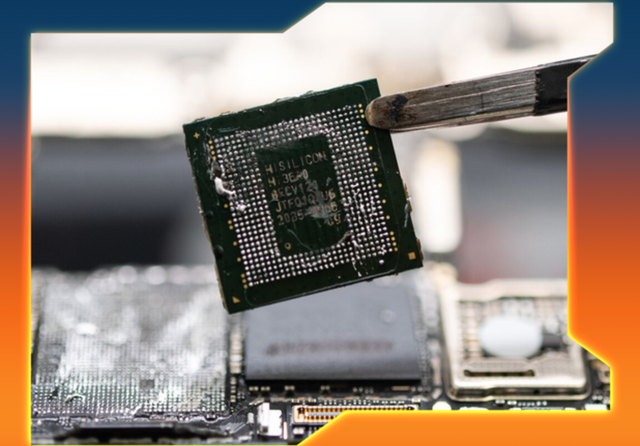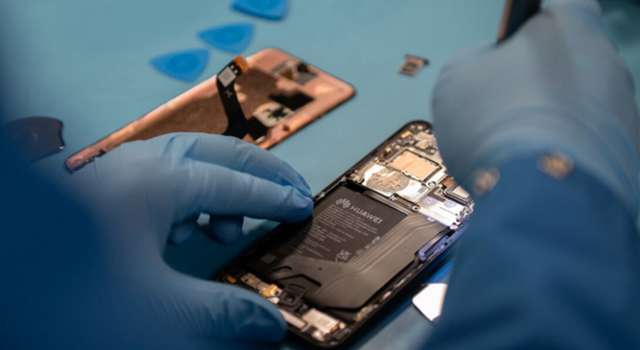The success of Huawei Technologies since returning to the smartphone market in August has surprised many policymakers who believed that previous sanctions would make the conglomerate less competitive.
This year, it is expected that Huawei will continue to assert its position in the smartphone, smart device, and telecommunications markets. 100 million smartphones are forecast to be produced and Huawei, once again, will become one of the largest phone companies globally.
According to Nikkei, Huawei’s telecommunications equipment business, the company’s initial focus, has performed well despite pressure from the US. This is largely due to Huawei’s leadership in building 5G networks. The massive domestic market has helped the company offset business losses in the markets where the US has increased pressure.
Thanks to stable telecommunications equipment business operations and a recovery in phone sales, Huawei’s revenue increased by % to over 700 billion yuan in 2023. This success is deeply significant as it demonstrates that Chinese companies are starting to succeed in large-scale semiconductor production.
Huawei’s role in the Chinese chip industry goes beyond what experts expected. In addition to being an important customer for leading chip manufacturers and designers, Huawei also has the financial capacity to support smaller companies in the supply chain.
With the appearance of the scheme in the Huawei Mate 60 Pro phone, Semiconductor Manufacturing International Corporation (SMIC), last year, demonstrated its ability to produce advanced chips. Meeting the goal of producing at least 60 million phones this year will be a stressful test.

The success of Huawei Technologies since returning to the smartphone market in August has surprised many policymakers
The Mate 60 Pro is considered to be the product that best reflects the close relationship between Huawei and the Chinese government as most advanced components are manufactured on the mainland, especially the 7-nanometer processor from SMIC. According to Bloomberg, the center of the network of state-owned enterprises that support Huawei is located in the Shenzhen Investment Fund, where Huawei is headquartered. The Shenzhen Capital Group was also established in 2019 to support China’s chip manufacturing efforts in general and Huawei in particular.
Currently, Huawei is promoting commercial operations, and the Mate 60 Pro is the launching pad. Analysts expect handheld device sales to increase to 40 million to 60 million units next year.
“Subsidies will help Huawei lower the price of its products,” said Chris Miller, author of Chip War: The Fight for the World’s Most Critical Technology. “In many emerging markets, this could help the company gain market share.”
Some analysts expect the recovery in phone sales to pave the way for HarmonyOS, Huawei’s self-developed operating system, to replace Apple’s iOS as the second most widely used operating system in China by the end of this year, second only to Google’s Android.
The latest version of the operating system, HarmonyOS NEXT, was shared with developers last month. This milestone marks Huawei’s complete independence.
So far, Huawei has brought more than 200 popular Chinese applications’ developers to participate in the HarmonyOS version. Currently, HarmonyOS is used in about 800 million devices, including tablets and laptops.
This could be just the beginning. It is easy to imagine how fast HarmonyOS is being applied by the Chinese government and businesses. Decades of integration have allowed China to accumulate a wealth of talent and expertise to build a self-sufficient technology platform.
Liang Mongsong is considered the “chip wizard” behind SMIC’s every technological breakthrough in the advanced chips the company supplies to Huawei. Dubbed the “chip magician” of Taiwan, Liang has successfully led the research and development operations at Taiwan Semiconductor Manufacturing Company (TSMC) for 16 years before helping Samsung build chip manufacturing operations prior to joining SMIC.
In addition to Liang, many experienced high-level chip experts working in foreign semiconductor companies, such as TSMC and electronic design automation software manufacturer Synopsys, have also joined Chinese companies or established startups in the country.
The state support provided to Huawei has reached unprecedented levels, according to Bloomberg. A network of businesses receiving funds from the government’s investment fund is now focused on helping Huawei build its own chip supply network. This group includes many experts in optics, chip device developers, and chemical manufacturers. The plan is part of a $30 billion effort to help Huawei build additional chip manufacturing facilities.
“Huawei is currently the center. Export controls have brought China and the chip industry closer together in a way we have never seen before,” said Kendra Schaefer, a partner at Trivium China, a Beijing-based consultancy.

SMIC and Huawei are ramping up their ambitions in AI chip production.
Currently, SMIC and Huawei are ramping up their ambitions in AI chip production. Huawei’s Ascend AI chip family has received positive evaluations from analysts despite overall performance shortcomings.
Sources familiar with the matter revealed that internet giants Tencent, Baidu, and Meituan have purchased Huawei’s Ascend 910b chips for small-scale testing. The factory producing this chip is also working to expand the manufacturing capacity of 7nm for Huawei chips that have been pre-ordered and develop more advanced 5nm processes. Production of Ascend 910b chips is expected to double within the next year, with over 200,000 chips produced.
However, venturing into AI chips means Huawei and SMIC have to compete for market share with Nvidia. AI chips are more significant than smartphone processors and, therefore, more prone to errors during manufacturing. Currently, the yield of Huawei’s Ascend 910b chips is only over 20%, meaning that out of every 5 chips produced, nearly 4 are defective.
Starting with the establishment of the Chinese integrated circuit industry investment fund in 2014, Beijing has nurtured the chip industry with government funds. This investment fund has accumulated a tremendous amount of USD 47 billion over the past decade and is expected to raise an additional USD 41 billion to strengthen China’s technology self-reliance.
A JW Insights report states that the government poured USD 290.8 billion into semiconductor-related areas in 2021 and 2022, with a third going to devices and semiconductor materials. The driving force behind this massive investment is simple: breaking free from heavy reliance on imports and gaining a stronger foothold in the global supply chain.












